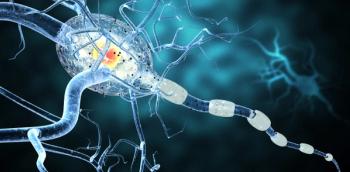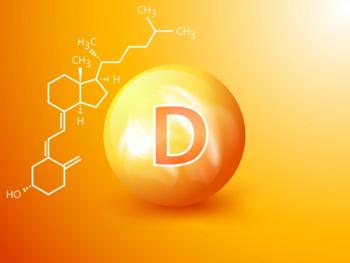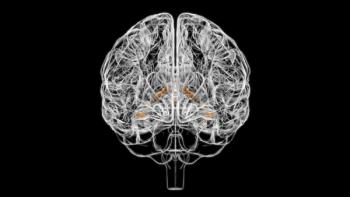
Multiple Sclerosis
Latest News
Latest Videos

CME Content
More News

This cross-sectional analysis demonstrates the impact that comorbidities in multiple sclerosis (MS) have on sleep quality in affected patients.

A prospective study found evidence of serum neurofilament light (sNfL) level increases in patients affected by active forms of relapsing-remitting multiple sclerosis (RRMS); however, these findings were not significant enough to suggest sNfL measurements replace clinical or MRI monitoring of disease activity.

A recent meta-analysis that assessed prescribed exercise in managing multiple sclerosis (MS) detailed the benefits of resistance training for improving muscle weakness in this patient population.

Kathy Zackowski, PhD, National MS Society, expresses the inherent value of quality rehabilitation trials for broadening clinical understandings of multiple sclerosis (MS) and bettering patient outcomes.

Dalia Rotstein, MD, MPH, emphazises the importance of awareness that multiple sclerosis (MS) impacts patients from various backgrounds as clinicians think through ways to improve access to care and research efforts in MS.

Ari Green, MD, University of California, San Francisco, discusses the promising results observed in current remyelination trials in multiple sclerosis (MS) and the patient-specific features that may influence therapy outcomes.

Mitzi Joi Williams, MD, of Joi Life Wellness Multiple Sclerosis (MS) Center, lists challenges in recruiting and retaining minority populations for clinical trials and discusses ways to ensure clinical trial accessibility.

Krystyn Van Vliet, PhD, of Cornell University, discusses the scalability of 3D platforms in multiple sclerosis (MS) drug discovery and compares their costs with those of other drug discovery methods.

Patrick Vermersch, MD, PhD, University of Lille, France details the adverse events observed in the frexalimab trials and the next steps necessary to establish frexalimab as a standard of care in multiple sclerosis (MS) in the third and final part of an interview.

Results from this cohort study found that levels of glial fibrillary acid protein, cerebral spinal fluid, and neurofilament heavy chain are distinguishable biomarkers that are associated with disease outcomes in multiple sclerosis (MS).

Krystyn Van Vliet, PhD, vice president for research and innovation at Cornell University's Meinig School of Biomedical Engineering, discusses using engineered 3D platforms to identify potential multiple sclerosis (MS) drug candidates.

The FDA has declined to approve glatiramer acetate (GA) depot in the treatment of relapsing types of multiple sclerosis (MS), issuing a complete response letter (CRL) for the long-acting, injectable form of GA.

A meta-analysis of 3 case-controlled MS studies showed an association between susceptibility to multiple sclerosis (MS) and the vitamin D pathway.

A national single-center observational retrospective study reveals the long-term benefits of hematopoietic stem cell transplantation in the treatment of multiple sclerosis (MS).

A longitudinal, observational study found that the choroid plexus, a network of blood vessels in each ventricle of the brain, plays a potential role in the neurodegenerative and chronic inflammatory process experienced by patients with relapsing remitting multiple sclerosis (MS).

The use of ibudilast in the treatment of progressive multiple sclerosis (MS) has been suggested to reduce lesion volume in patients.

A large-scale, population-based study examined patterns of disease-modifying therapy (DMT) exposure in pregnant patients with MS since 2010, revealing increased occurrences and the need for future studies to examine the impact of newer-developed DMTs.

A community-based study suggests a correlation between university education and the likelihood of disease-modifying therapy (DMT) uptake in multiple sclerosis (MS).

A cross-sectional analysis evaluated a myriad of socioeconomic and demographic factors that drive stigma experienced by patients with multiple sclerosis (MS).

Exposure to tobacco smoke in utero has the potential to make offspring more vulnerable to developing multiple sclerosis (MS).

More research is necessary to understand cerebral oxygen consumption as a predictive biomarker for brain atrophy in multiple sclerosis (MS); however, this study found that mitochondrial dysfunction could have a role in the underlying pathophysiology of MS.

A prospective analysis suggested that those with pediatric-onset multiple sclerosis (MS) who experienced earlier disease-modifying treatment initiation may be less vulnerable to disease progression.

A population-based study drew a possible connection between gastrointestinal (GI) symptoms and the multiple sclerosis (MS) prodrome.

Misdiagnoses of multiple sclerosis (MS) represent one of the prominent challenges in MS for patients, clinicians, and researchers. A variety of factors influence misdiagnosis, including testing deficiencies, copycat diseases, and more.

A single-center, observational study conducted in the Czech Republic investigated the determining factors in delayed diagnoses in multiple sclerosis (MS) and how these delays impact patient outcomes.
















